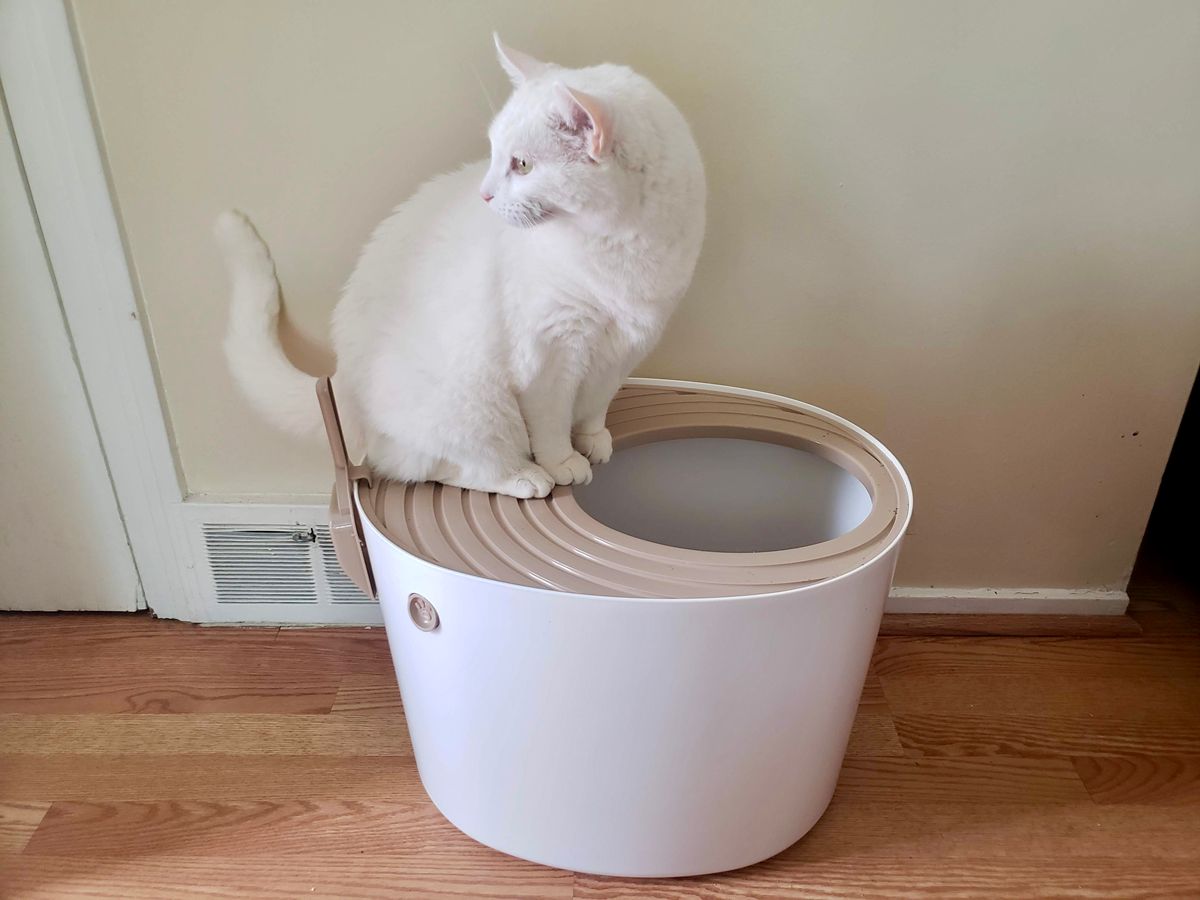
Liz Coleman / Cats.com
If you’re a cat owner, you probably have a litter box or two (or more!) in your home. You might not enjoy the cleanup, but having a litter box around is important for your cat. Let’s find out why cats use litter boxes.
Cats instinctively want to defecate and urinate in sand or dirt. Cats bury their urine and feces to hide their scent from predators. In a multi-cat household, it's best to have one litter box per cat, plus one extra.Key Takeaways
Why Do Cats Use Litter Boxes?
In the wild, big cats don’t use a litter box, but domestic cats, especially those that live primarily indoors, need litter box for a number of reasons. Let’s explore them:
1. It’s Their Instinct
Have you ever wondered how kittens seem to get the hang of using a litter box so quickly? Litter box training a kitten is nowhere near as intense as potty training a human toddler or even house training a puppy.
In fact, many kittens seem to head straight to their new litter tray to pee and poop without any help or instructions. This is because it’s a kitten’s natural instinct to pass urine and feces in a sandy substrate like dirt, gravel, wood chips, or cat litter.
2. They Can Cover Their Scent
Digging allows cats to bury their waste so they don’t attract predators. That’s why if you spot a cat passing urine or feces in your garden, they’ll probably spend plenty of time afterward using the soil and dirt to cover their smell.
3. Cats Like To Dig

When cats dig in their litter box, they release their scent from glands in their paws, marking the area as theirs. Kirsten McCarthy / Cats.com
Digging is a normal cat behavior. When cats dig and scratch in their litter tray, they release their scent from the scent glands in their paws. This is their way of marking their territory and letting other cats in the household know that this particular toilet belongs to them.
4. They Feel Safe
Cats are at their most vulnerable while they are passing urine and feces, so it’s natural that they prefer to do their business somewhere they feel safe and secure. This might mean an open litter box in a quiet corner of the house, but equally, your cat might prefer a covered box with a cat flap door for extra privacy.
You might find that your cat wants to spend a lot of time in their litter box if they feel safe, but this could also be a sign that something is wrong. Read 6 Reasons Cats Sit In Their Litter Boxes And When To Worry to find out more.
5. It Helps Keep Them Clean
Cats are very clean creatures. A litter box keeps your cat free of mess because the cat litter will absorb any liquid and reduce cat poop smells. Make sure the litter box isn’s close to your cat’s food or water bowls, as they consider this unclean and might not use the box.
What if Your Cat Has Stopped Using Their Litter Box?
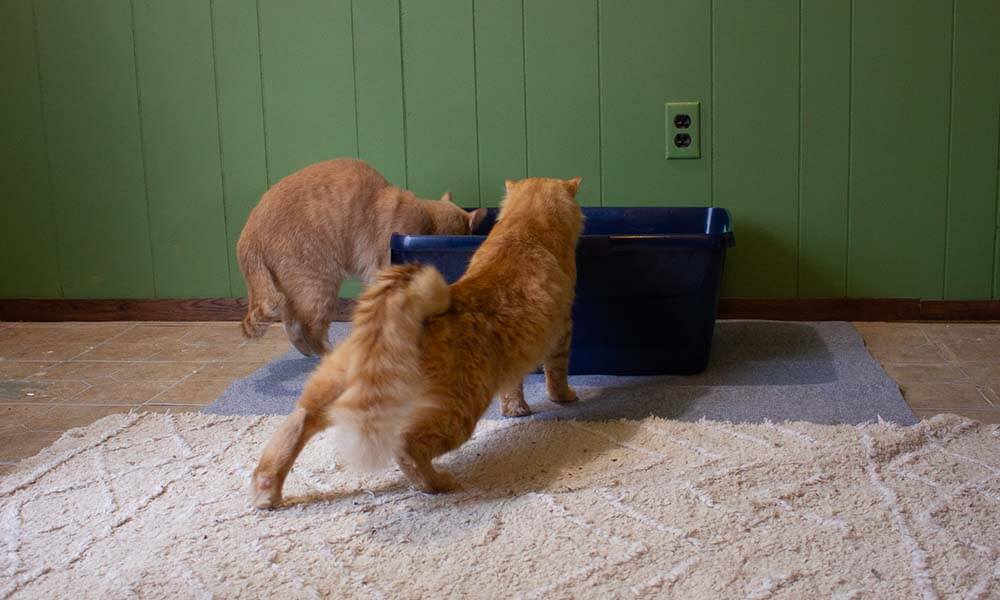
Some tried-and-true strategies can keep cats using their litter box. Shannon Perry / Cats.com
There are lots of reasons why a cat might stop using their litter box and you can find some in our article Why Is My Cat Not Using The Litter Box? If your cat has started peeing or pooping outside their litter box, here are some things to consider:
1. Do You Have Enough Litter Boxes?
The best rule to use when deciding how many litter boxes you need is to have one more litter box than the number of cats in the house. Cats don’t like to share, and if the litter box is dirty or smells of their roommate they might get stressed or display their disapproval by eliminating outside the litter box.
Therefore, in a multi-cat household, you might end up with many litter boxes so that your cats each have a clean litter box of their own.
2. Are the Litter Boxes in the Right Location?
No one wants to use the bathroom with an audience, and cats are no different. Make sure your cat’s litter box is in a quiet area of the house where they can get the privacy they need. For extra discretion, why not try a covered litter box or read How to set up your cat’s litterbox for success?
3. Are You Using the Best Cat Litter?
All cats are different, so their cat litter preferences will vary, too. If your cat’s not keen on using their litter box, it could mean that the cat litter substrate isn’t to their liking. Remember, there are plenty of types of litter available, including clumping litter, and non-clumping litter such as paper, silica, wheat, corn, grass, wood shavings and more. With a bit of trial and error, you find out your cat’s preference.
4. Would Your Cat Prefer a Different Style of Litter Box?
If you’re facing some resistance from your cat about using a litter box, it’s worth considering whether they’d prefer a different style of tray. For instance, if they are a young kitten or an older cat with arthritis, a litter box with tall sides might be a struggle. On the other hand, a particularly shy, timid cat might want a covered litter tray.
5. Is Your Cat Stressed?

Kittens instinctively want to eliminate in soft substrate, which is why they are drawn to a box filled with cat litter. Melina Grin / Cats.com
One of the most common causes of cats not using their litter box is stress. Worrying about other cats in the home or local area, or stress caused by loud visitors or building work are all possible causes of inappropriate urination and defecation.
If you think your cat might be stressed or if they have symptoms affecting their toilet habits, it’s a good idea to get them checked by a veterinarian. The veterinarian can check for medical issues and refer you to a cat behaviorist if needed.
Final Thoughts
Although it might be tempting to ditch your cat’s litter box and try to get them to do their business outside, most cats prefer using a litter box. If you try to force your cat to toilet outside, you could make them stressed and cause even more toileting problems. When you’re a cat owner, it’s best to accept that a litter box is just part of the furniture!
Frequently Asked Questions
Do cats really need litter boxes?
Some cats will pass urine and feces outside without requiring a litter box. However, for this to be the case they would need free access outside whenever they require it. Equally, many cats prefer the privacy and safety of a litter box in the home. Of course, all house cats will require one litter box each and it’s a good idea to get one extra, too.
Why do cats use a litter box and dogs don’t?
Cats tend to pass urine and poop in one place and bury their waste to hide it from predators, whereas dogs use their urine and feces for territory marking, so the more prominent the better!
Why do cats use litter boxes and not go outside?
Many cats prefer to use an indoor litter box, which protects them from the elements as well as keeps them safe from predators when they're at their most vulnerable.
Are cats naturally potty trained?
It's a kitten's instinct to use a litter box, and their mother will often help, too. That's why when you bring home a new cat or kitten it's not usually much work to get them to use their litter box.

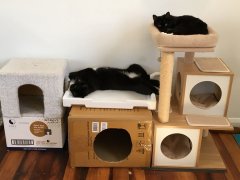



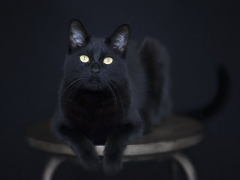
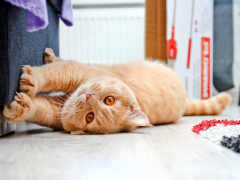
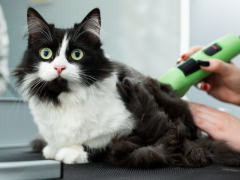
In the article about litter boxes, you use the singular they for a cat. Why? I can understand the ideological reasons for applying it to a human, but why apply contemporary LGTPQ sensibilities to an animal?